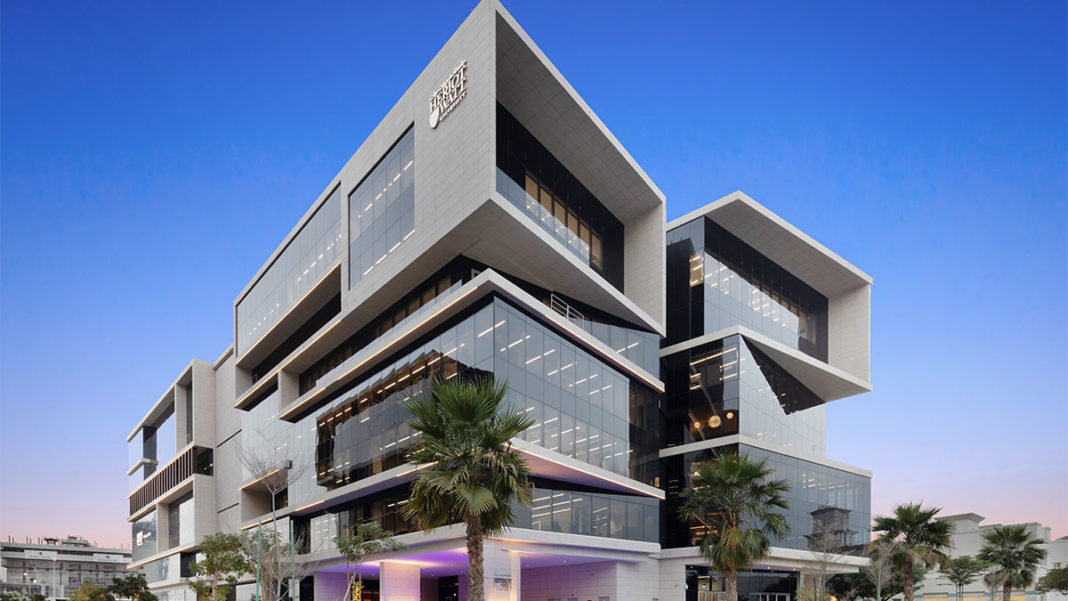
HERIOT-Watt University’s Dubai campus has been awarded gold status by the Leadership in Energy and Environmental Design (LEED).
Several factors helped the campus qualify for gold, including a 46% reduction in water use compared to LEED’s baseline water consumption and 94% of all equipment and appliances being Energy Star compliant and optimise energy performance.
Further to this is 98% of the lighting load is connected to occupancy sensors in order to optimise energy performance and 63% of the lighting load is connected to daylight sensors.
Ross Trivett, general manager at Khansaheb, the main contractor of the build of the Dubai campus, said, “We are delighted that the university campus has achieved LEED Gold. The project exemplifies what is possible when all stakeholders collaborate towards achieving sustainability goals and is testament to our commitment to creating places that balance our environmental obligations within the community and economy.”
Paul Ludlam, director and head of Fit Out UAE at JLL Project & Development Services, added, “We are thrilled to have been part of this successful project and lead all phases from project inception through to project completion and occupation including LEED services. Obtaining the LEED Gold certificate was the culmination of the efforts of all the teams involved and it further demonstrates Heriot-Watt’s commitment to provide healthy and sustainable spaces for its students and employees.
“Now with the world emerging from the pandemic, it is even more important to prioritise occupant health and plan for a green and sustainable future for everyone.”
Lynda Johnstone, global director for estates and facilities at Heriot-Watt University, said, “Our vision for the Dubai campus was to create a workplace that is safe and healthy and promotes improved health and productivity. Several studies have found that there is a clear link between the design of the building and employee health, and at the Dubai campus, we have done our best to undertake a holistic approach that takes into account efficient use of resources, good indoor environmental air quality, the use of non-toxic, sustainable, and ethical materials and more, all of which supports health and wellbeing.”








